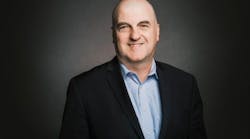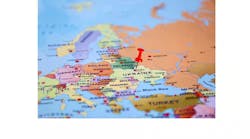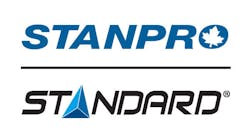You are an electrical distributor who sees dollar signs in offshore product sourcing, but you don't know where to start.
You ask yourself: What product opportunities are there? How do I meet potential suppliers? What are the terms and credit implications? How do product-liability insurance issues get handled?
Most U.S. distributors have shied away from the global market, but many of those who have embraced it have succeeded.
Some key trends in international commerce have had an impact on the electrical market. North American trade agreements have opened up the borders between the United States, Canada and Mexico. Electrical equipment manufacturing in Mexico has increased. European manufacturers are more interested than ever in selling their products in the United States. These trends offer a glimpse of the electrical industry's future direction.
While traveling the world, I have watched European distributors actively pursue Far East manufacturers and build their own private branding opportunities to complement their other lines. It's happening in the United States, too. The U.S. electrical market got a taste of global commerce and some of the new packaging standards it requires as a result of NAFTA and other Mexican trade agreements. Don't forget that two of our largest North American electrical distributors, Rexel Inc. and Sonepar USA, have substantial European ownership.
While researching this article, I asked manufacturers about the percentage of sales of components and/or products they purchase offshore and how that percentage has changed in the last 10 years. Their responses surprised me. The average 10 years ago was between 2 percent and 5 percent. It's now risen to between 20 percent and 25 percent. For some companies, the percentage is 30 percent.
I also get questions concerning packaging requirements to distributors from NAFTA and the CE markings for the European Community. In both cases, the responses uncovered overwhelming evidence that more electrical distributors are taking interest in the global market. European electrical distributors have been trading goods and services across international borders for two decades. It's part of their culture to seize new global opportunities when they arise.
For example, in 1997 I ran the international division for a U.S. electrical manufacturer and I made a sales call on an electrical distributor in Sweden to show him a new product I was importing from the Far East. To my surprise, the Swedish electrical distributor opened his desk drawer and showed me the same product — which he was importing at a lower cost than my company from the same manufacturer. I was shocked. But during that two-week trip to Europe I repeatedly ran into this same story. That distributor wasn't the only European company forming relationships with manufacturing companies located in the Far East. Today, this business model is well entrenched in the European community.
What does this mean to U.S. distributors? Because so many different types of electrical distributors exist in this country, the answer depends on your company's focus, customers' buying habits, and strategic direction. But you must be prepared to change your business model, sever alliances with long-standing brands and hire employees with new skills.
Don't underestimate the importance of customer buying habits. They have been exposed to international markets' offshore sourcing, and many are comfortable gathering product information or purchasing products online. But as always, they want the best value for a fair price. This was one of the drivers in offshore sourcing in Europe.
Offshore product sourcing isn't for everyone, and it won't be your best option with many products. When evaluating whether or not new sourcing options are a fit for your company and its customers, first evaluate the potential risks, rewards and the investment required. You will also have to understand lead times, currency exchange and product liability in global marketing.
Like it or not, the North American electrical industry is becoming more global. This may or may not present an opportunity for your company, but you owe it to your business to learn more about the new alternatives available.
The author is president, CEO and founder of IP Group International, an international consulting firm based in Mundelein, Ill. He can be contacted at (480) 488-5646, or by e-mail at [email protected].








